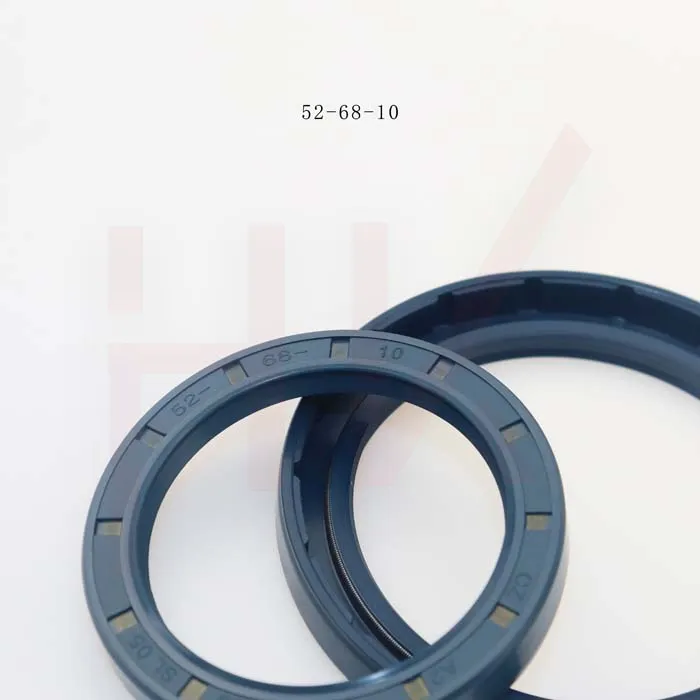Dec . 07, 2024 14:38 Back to list
excavator seal
Understanding Excavator Seals Essential Components for Optimal Performance
Excavators are indispensable heavy machinery in the construction and mining industries, renowned for their capability to dig, lift, and move large volumes of earth and materials. One of the critical components that contribute to the efficiency, safety, and longevity of excavators is their seals. In this article, we will delve into the types of excavator seals, their functions, and best maintenance practices to ensure optimal performance.
Types of Excavator Seals
Excavator seals are specifically designed to prevent fluid leakage and protect critical mechanical components from contaminants. Several types of seals are utilized in excavators, each serving unique purposes
1. Hydraulic Seals These are crucial for keeping hydraulic fluid in the system while preventing the ingress of dust and dirt. Common types include O-rings, piston seals, and rod seals. Hydraulic seals are essential for maintaining the pressure needed to operate hydraulic cylinders effectively.
2. Rotary Seals Often referred to as lip seals, these are used in rotating applications to seal shafts and prevent fluid leakage. In excavators, rotary seals are crucial for parts like swing drives and hydraulic motors, where rotational movement occurs.
3. Gaskets Gaskets serve as static seals between two mating surfaces. They are commonly used in oil pans, cylinder heads, and other joint areas where liquids must be contained.
4. Dust Seals Dust seals are crucial for preventing dirt, sand, and other debris from entering sensitive areas such as hydraulic cylinders. These seals are typically installed outside the main sealing component, providing an additional layer of protection.
Functions of Excavator Seals
The primary functions of excavator seals include
- Preventing Leaks Seals are designed to keep hydraulic fluids contained within the system, preventing costly leaks that could lead to reduced efficiency and environmental hazards.
- Contaminant Protection Seals act as barriers against dust, debris, and water, which can cause damage to hydraulic and mechanical components, leading to premature wear and malfunction.
excavator seal

- Maintaining Pressure Effective seals are essential for maintaining hydraulic pressure, which is critical for the proper functioning of hydraulic systems, ensuring that the excavator operates efficiently.
- Enhancing Equipment Longevity By preventing leaks and protecting components from contaminants, seals contribute significantly to the overall longevity and durability of excavators.
Maintenance of Excavator Seals
Proper maintenance of excavator seals is paramount to ensure they function effectively. Here are some best practices
1. Regular Inspections Conduct routine inspections of seals and gaskets to check for signs of wear or damage. Look for cracks, splits, or excessive wear that might lead to leaks.
2. Fluid Quality Using high-quality hydraulic fluids can extend the life of seals. Contaminated fluids can degrade seals quickly, so ensure that fluids are clean and within the manufacturer’s specifications.
3. Lubrication Proper lubrication of moving parts can help reduce friction, which might otherwise wear out seals prematurely. Make sure to use recommended lubricants compatible with the seal materials.
4. Environmental Considerations Protect excavators from harsh environmental conditions whenever possible. Harsh weather or extreme temperatures can affect the elasticity and performance of seals.
5. Timely Replacements If seals show signs of failure, replace them promptly to avoid extensive damage to hydraulic systems or other components.
Conclusion
Excavator seals, although often overlooked, are fundamental components that play a crucial role in the efficiency and longevity of excavators. Understanding the different types of seals, their functions, and maintenance practices will not only enhance the performance of your machinery but also save on costly repairs in the long run. Take the time to ensure that your excavator is equipped with reliable seals and conduct regular maintenance checks to keep your equipment running smoothly and efficiently. Whether in construction, demolition, or mining, investing in quality seal management ensures that your excavator remains a powerful tool in your fleet.
-
TCN Oil Seal Metal Ring Reinforcement for Heavy Machinery
NewsJul.25,2025
-
Rotary Lip Seal Spring-Loaded Design for High-Speed Applications
NewsJul.25,2025
-
Hydraulic Cylinder Seals Polyurethane Material for High-Impact Jobs
NewsJul.25,2025
-
High Pressure Oil Seal Polyurethane Coating Wear Resistance
NewsJul.25,2025
-
Dust Proof Seal Double Lip Design for Construction Equipment
NewsJul.25,2025
-
Hub Seal Polyurethane Wear Resistance in Agricultural Vehicles
NewsJul.25,2025
-
The Trans-formative Journey of Wheel Hub Oil Seals
NewsJun.06,2025
Products categories
















